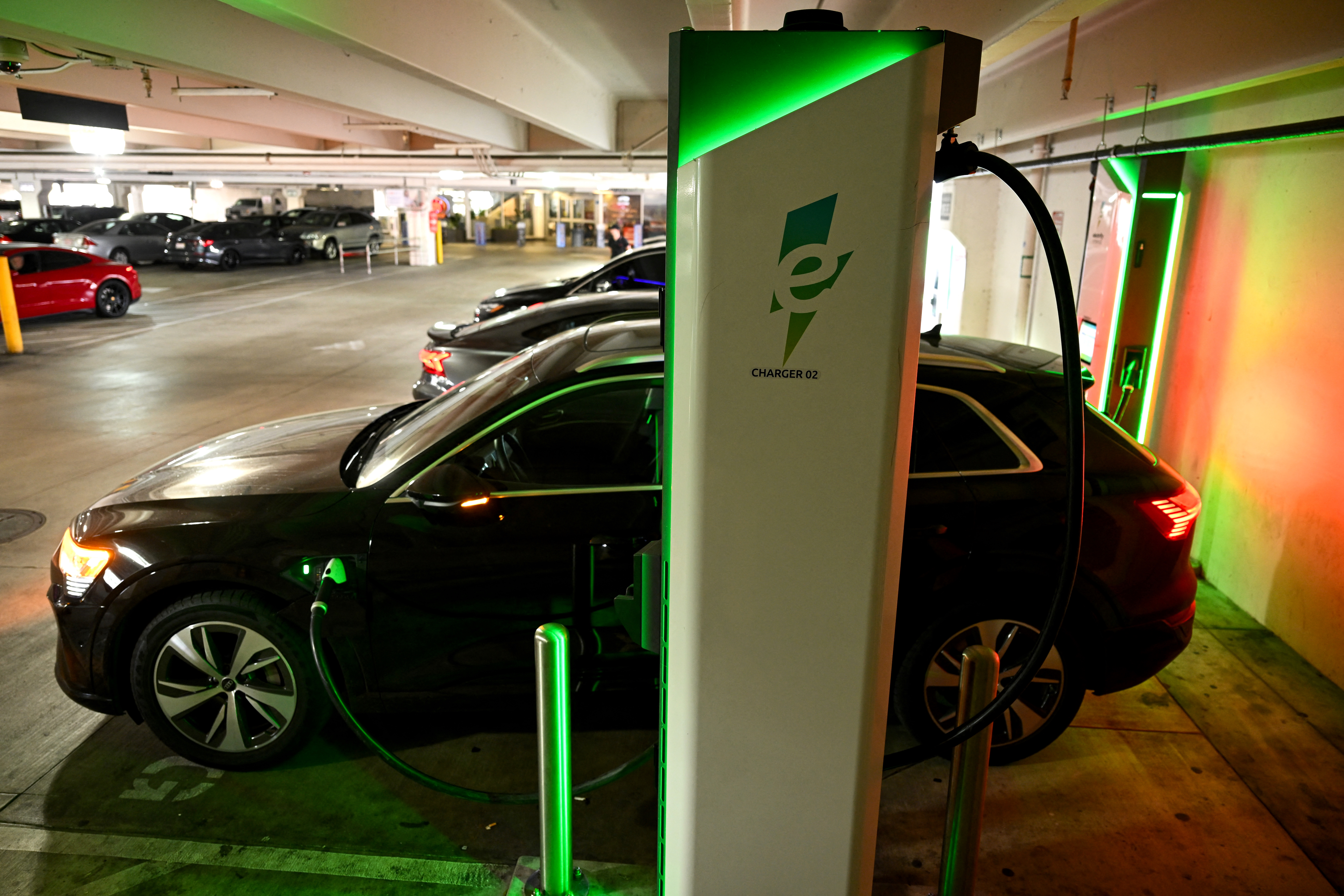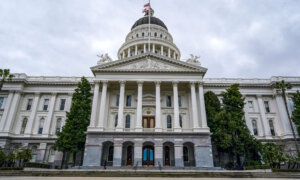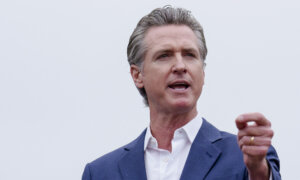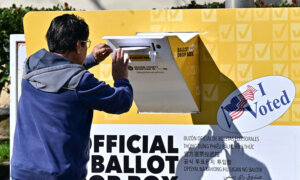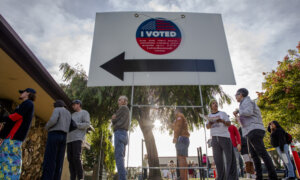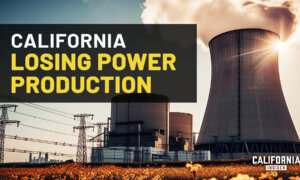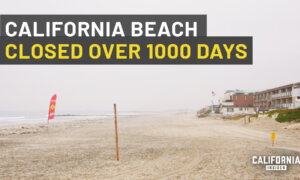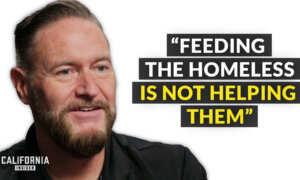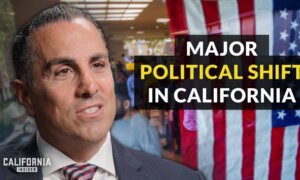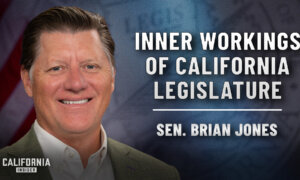California Gov. Gavin Newsom announced Nov. 25 that he will propose a new state-level program to offer tax credits for zero-emission vehicles if the administration of President-elect Donald Trump moves to eliminate federal tax allowances.
The governor said the state remains committed to encouraging adoption of electric and other alternative fuel vehicles.
“We’re not turning back on a clean transportation future,” Newsom said in a statement. “We’re going to make it more affordable for people to drive vehicles that don’t pollute.”
He highlighted the more than 2 million zero-emission vehicles sold in California—including more than 115,000 in the third quarter of 2024, representing more than 26 percent of the market—as evidence that consumers are demanding alternatives to traditional gas engines.
If federal incentives are removed, the governor will request that the Legislature create a plan like the state’s Clean Vehicle Rebate Program, which was established in 2009 and ended in 2023.
That program awarded up to $7,500 in tax credits—with amounts varying based on income and type of automobile—to purchasers of zero-emission vehicles.
More than $1.4 billion in rebates were claimed during the life of the clean vehicle program, according to data from the California Air Resources Board, the agency that ran the program.
The money spent by the state helped discount the price of more than 594,000 cars and trucks sold, and about 456 million gallons of fuel were saved, according to the governor’s statement.
Credits were first established federally nearly 20 years ago with President George W. Bush’s signing of the Energy Policy Act of 2005. At the time, credits of up to $3,400 were allowed.
Former President Barack Obama’s administration oversaw an increase of the credit amount to $7,500 in 2009, with actual amounts based on vehicle specifications.
The credits were adjusted with the passage of the Inflation Reduction Act of 2022 to extend the rebates until 2032.
A representative of the incoming administration declined to say whether change was on the horizon.
“The American people re-elected President Trump by a resounding margin giving him a mandate to implement the promises he made on the campaign trail, including stopping attacks on gas-powered cars,” Karoline Leavitt, Trump-Vance transition spokeswoman and the newly announced press secretary for the 47th president, told The Epoch Times by email Nov. 25. “When he takes office, President Trump will support the auto industry, allowing space for both gas-powered cars and electric vehicles.”
If federal credits are rescinded, Newsom is asking lawmakers to adjust the prior state program’s guidelines to help improve competitiveness in the zero-emission vehicle market.
No details are provided in his statement as to what changes are needed and how they would be implemented.
Currently, Tesla dominates the industry in the Golden State, accounting for more than 54 percent of sales in 2024, a drop from more than 63 percent last year, according to the third-quarter report from the California New Car Dealers Association.
Elon Musk, CEO of Tesla, has repeatedly voiced opposition to the tax incentives and said subsidies should be eliminated for all industries.
Rebates would be paid from the state’s Greenhouse Gas Reduction Fund, which collects money from companies that exceed emission limits established by the state’s so-called “cap-and-trade” program, according to the governor’s statement.
With the state navigating a multi-year budget deficit dilemma, how to pay for the credits is a matter of concern for some lawmakers.
“Cap-and-trade is clearly costing taxpayers and consumers,” state Sen. Roger Niello, vice-chair of the Senate Budget Committee, told The Epoch Times Nov. 25. “So, I don’t see how the governor is going to get that through ... without making cuts to other programs.”
In a report released Nov. 20, the nonpartisan Legislative Analyst’s Office warned that while California’s budget was “roughly balanced,” some economic signals pointed to weakness. Analysts warned that the state cannot afford to take on any more commitments and cautioned that a downturn in the stock market could significantly worsen the state’s fiscal outlook.
With a background as an automobile dealer in the Sacramento Area, Niello said the Golden State’s alternative fuel vehicle market is the strongest in the nation—the air resources board estimates the state accounts for more than 30 percent of all sales nationwide—and that subsidies are not needed to drive demand.
“The government trying to dictate what happens in the marketplace, it just doesn’t work,” Niello said. “They ought to let the marketplace play that out.”
But proposed tax credits are meant to follow through on California’s investments to spur zero-emission vehicle adoption, the governor’s statement said.
“California’s support for clean cars is unmatched,” Newsom’s office wrote. “With the rise in EV and plug-in hybrid demand, the state is committed to rapidly deploying funds to develop and ensure an accessible, reliable and easy-to-use charging network.”
About 650,000 electric vehicle chargers were installed in the state this year, including about 150,000 publicly available units.
Utilizing more than $32 million in federal funds, the state awarded money to install and operate 458 chargers near highways and frequently traveled roads across the state.
Another nearly $82 million will be divvied up in 2025 after the Biden administration announced the award earlier this year, according to the statement.
Additionally, recent state efforts to advance zero-emission heavy duty transportation vehicles include more than $100 million for charging and hydrogen fueling stations and a half-billion dollars to add alternative fuel school buses.
Newsom is also seeking to counter the incoming Trump administration’s potential policy decisions related to climate, abortion, and other issues by calling a legislative special session set to begin Dec. 2.
California was involved in 122 lawsuits with the federal government during Trump’s first term, and the governor called the coming session an opportunity for “litigation preparation.”
